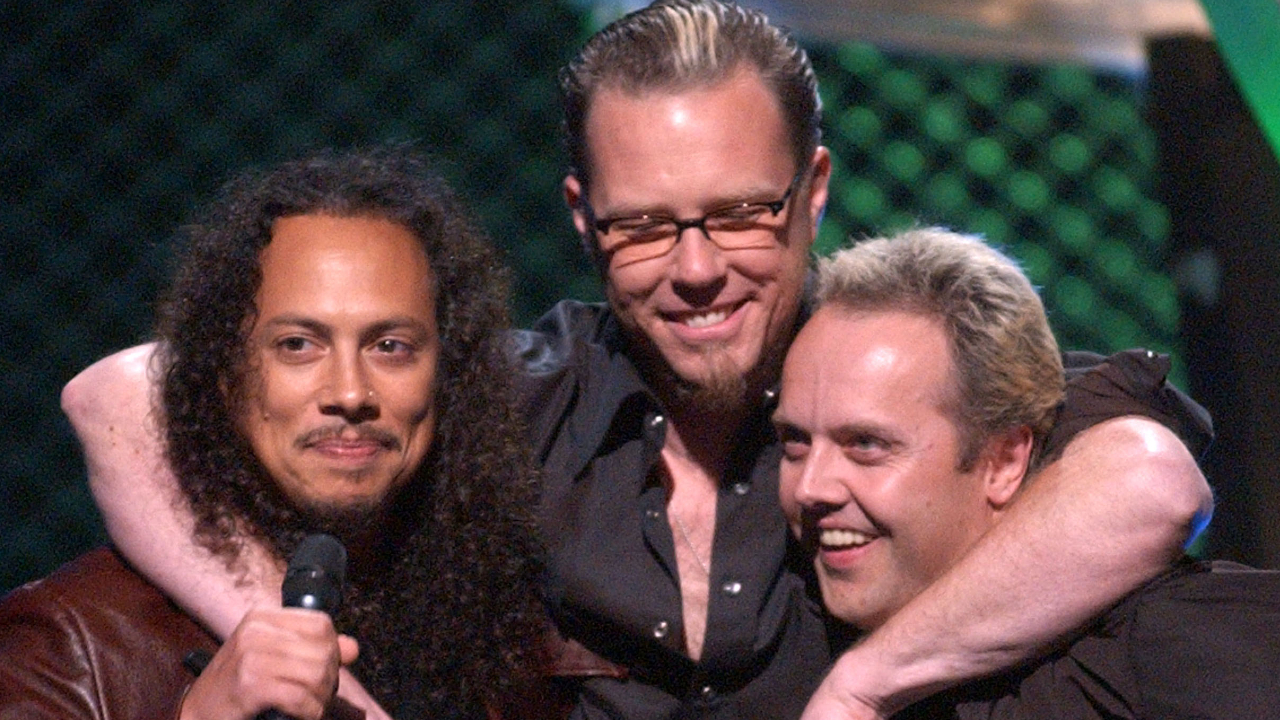How Boston hardcore changed rock music
From the ashes of the violent 90s Boston hardcore scene rose a group of bands who would change rock music forever. This is their story
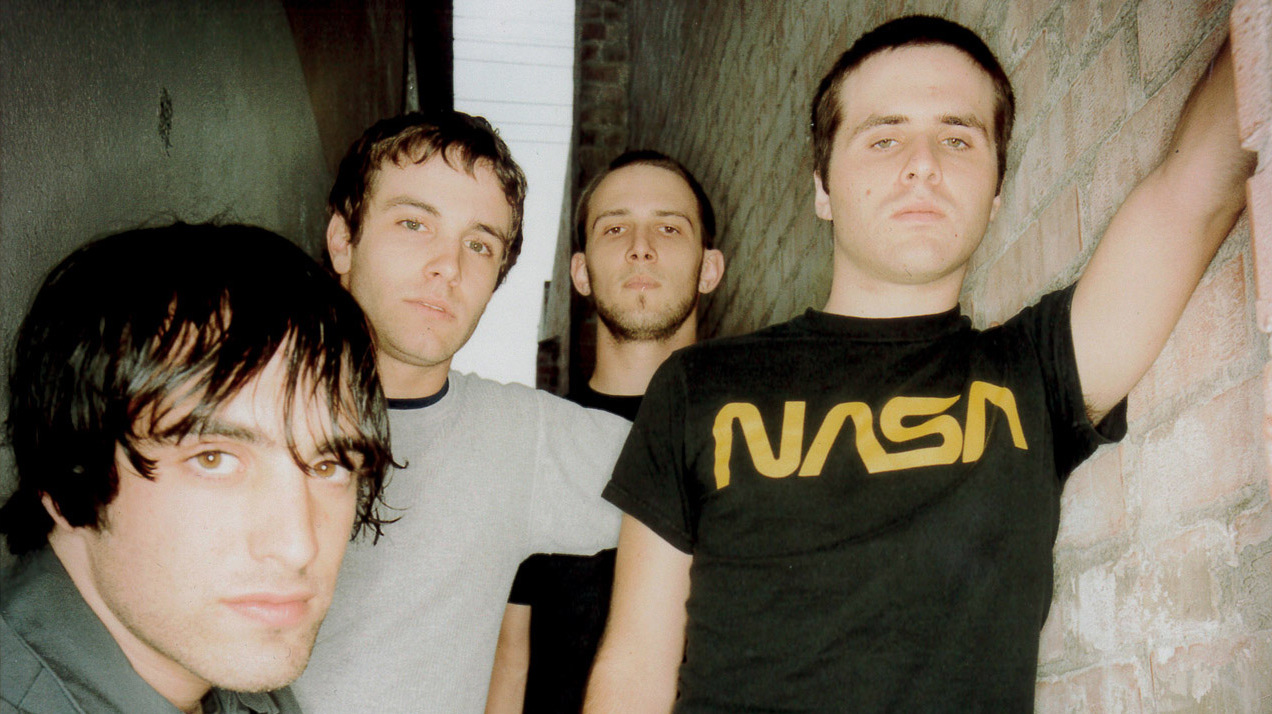
While 1980s LA had Black Flag, New York was famed for Agnostic Front and Cro-Mags, and Washington DC boasted Bad Brains and Minor Threat, Boston’s output was lower key.
Gang Green, Negative FX, DYS and many other bands released on independent label Taang Records during that period are not as familiar, and SS Decontrol are perhaps better known for their militant, straight-edge stance than their music. But their impact was just as keenly felt, and would spawn a whole new Boston scene.
“I wasn’t old enough to see those bands, but also wasn’t young enough to not have them as mandatory listening when getting into hardcore,” says Wes Eisold, who would go on to form American Nightmare. “SSD, DYS, Slapshot, [1982’s] This Is Boston Not L.A. compilation, Siege… they were all tapes I had in high school.”
Ultimately, though, there was one thing the Boston hardcore scene was famous for: violence. Stephen Brodsky, who’d later form Cave In, remembers his earliest experiences of local hardcore shows in the late 80s at a place called the Red Barn in North Andover, an hour north of town. He and his best friend were metalheads, and the crowd didn’t take kindly to them.
“The older hardcore kids didn’t like the looks of us, and we got targeted with some dumb violent shit,” he says. “My guess is that by the time Boston found its wave, not only was the city ready to claim its due, but it did so with a force of such rabid anger and intensity that instigated sheer violence and hostility – which definitely adds a certain fire to this story.”
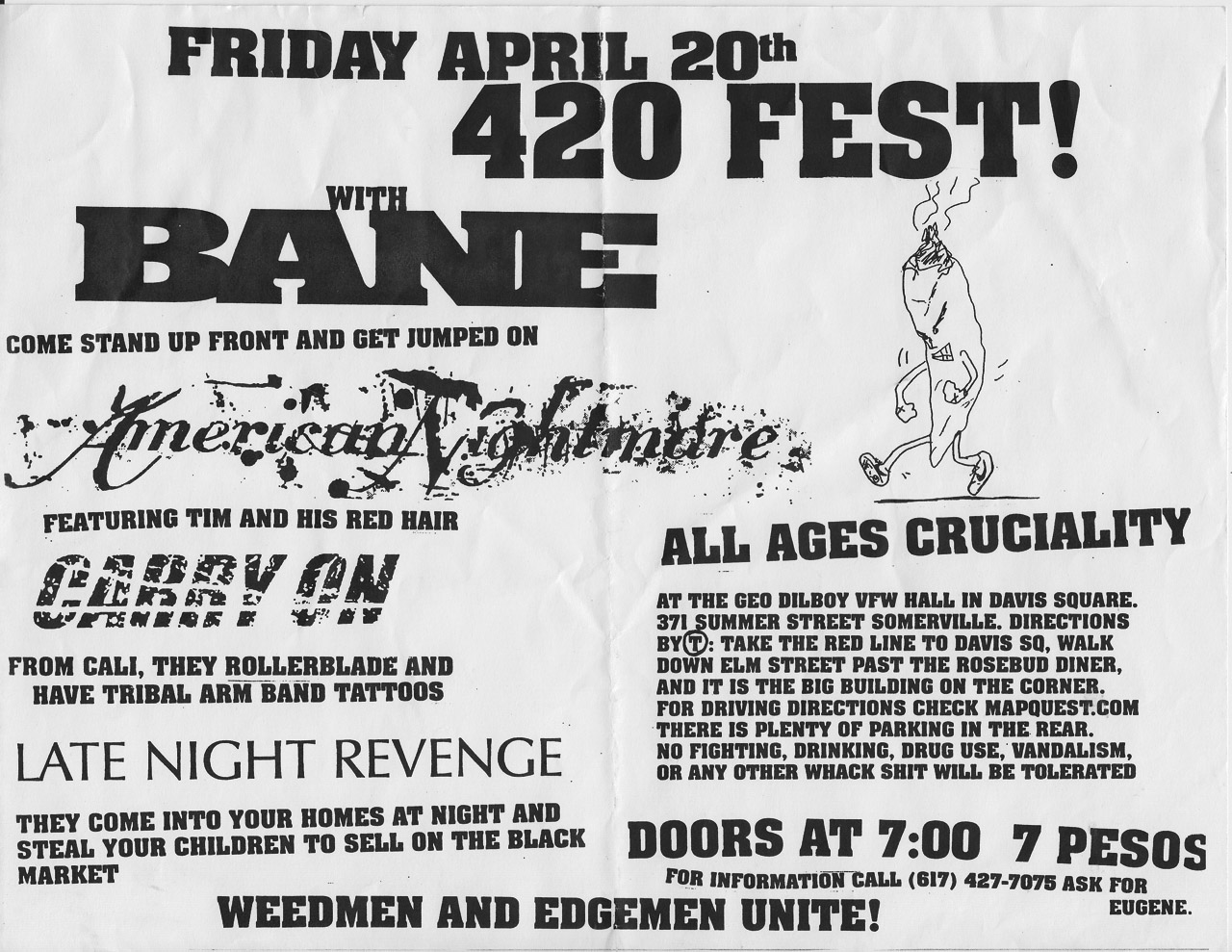
As violence marred the scene, younger musicians grew tired of the status quo, and a new community began to develop. Stephen pinpoints Converge as the catalyst for change, both in sound and approach. When he got a tape of their debut album, 1994’s Halo In A Haystack, from future Cave In bassist Adam McGrath, it changed his life.
“It was totally transformative for me, because I was hearing a local band doing something fresh with heavy music,” he explains. “Not only did it make me wanna follow that path, it allowed me to bond more closely with people like Adam who shared a similar vision. It turned out that a lot of people in my immediate area felt the same way.”
Sign up below to get the latest from Metal Hammer, plus exclusive special offers, direct to your inbox!
“I remember getting a tape of [1996’s] Petitioning The Empty Sky before it came out,” says New Mexico native Aaron Turner, who chose to attend college in Boston mainly to be closer to its burgeoning scene, and would later form Isis.
“I went back to my bedroom and put it on, and just sat on the floor open-mouthed. I knew they were good, but… I was just blown away.”
After moving to Boston, Aaron dived into the scene headfirst by founding Hydra Head Records, who would go on to sign Cave In. It was a key moment in expanding the reach of the scene, and the scope of its sound. “When I moved down, one of the first shows I saw was [New York hardcore punks] Earth Crisis supported by Cave In,” he tells us.
“I was there for Earth Crisis, but I was immediately captivated by Cave In, even though they were in their infancy. I was very energised by seeing a band that were even younger than me so invested in what they were doing and not afraid to try things. I wanted to be an active participant.”
With the violence of early hardcore still dominating the central city area, younger bands were forced to find their own niche in Boston’s satellite cities, such as Worcester and New Hampshire. “It was the only place the younger bands could play shows,” says Converge vocalist Jacob Bannon.
“It was where many of us met. I’ve got pictures of us playing in New Hampshire in 1997 with American Nightmare’s Wes also on stage in a Lifetime [90s New Jersey punks] shirt; everyone was connected through the music.”
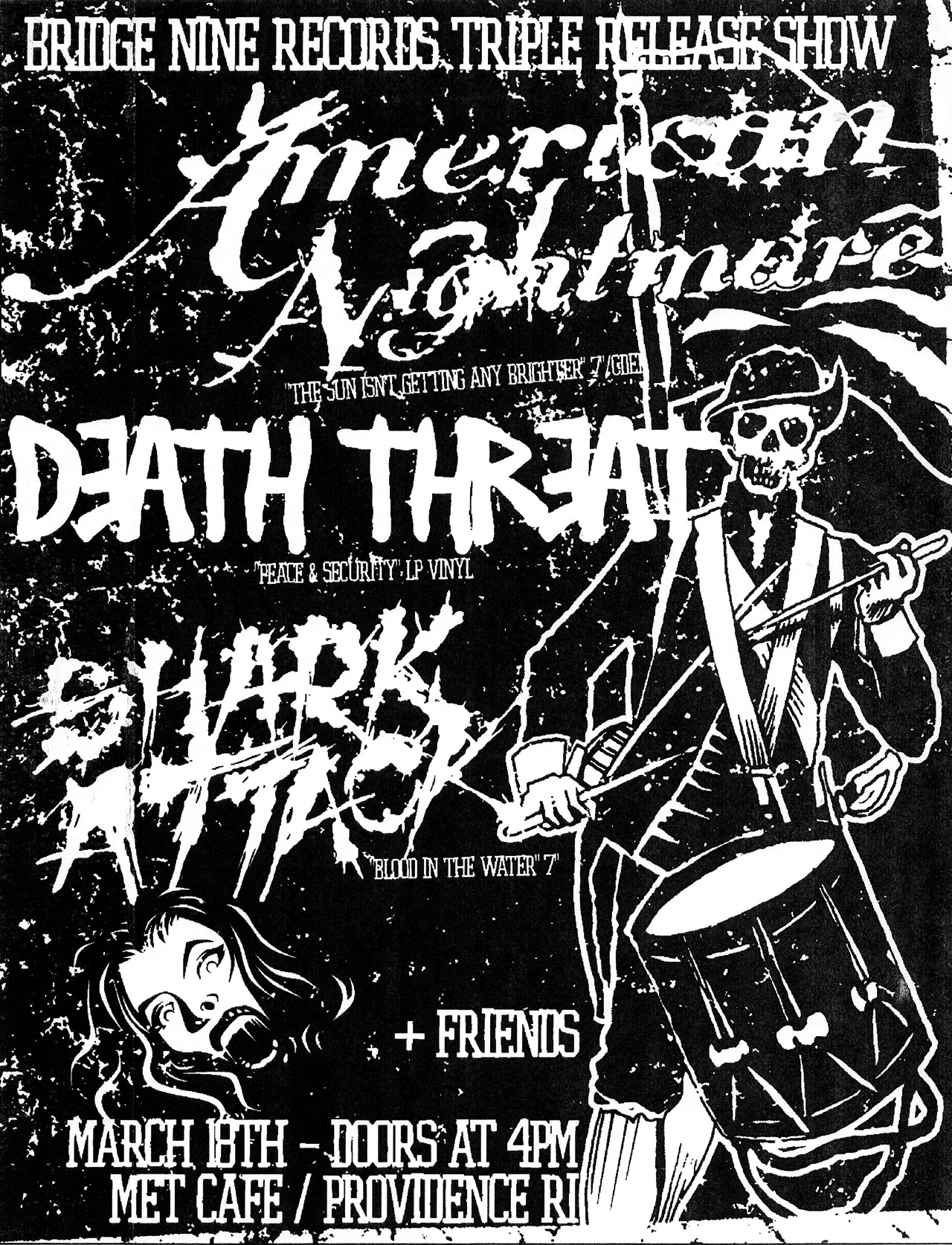
Following the lead of Converge, Boston soon became a hub for eclectic, intelligent and unique hardcore punk. Suddenly, the scene was populated by Deadguy, Cave In, Bane, American Nightmare, The Hope Conspiracy and more, all twisting hardcore into new shapes and taking influence from anything they could get their ears on.
“Working with Hydra Head elevated things for Cave In,” says Stephen. “Aaron pooled together so much great stuff through the label, and our minds were blown by all the rad heavy music happening around us. In the midst of writing [2000’s] Jupiter, Cave In opened a bunch of shows for Neurosis, who had just released Times Of Grace, and everyone in our camp was floored by it. We thought that was a good direction to go in; atmospheric heaviness over technical ability.”
With a raft of wildly exciting bands, all starting to forge their own sonic path, and Aaron’s new label on hand to help shine light upon them, the scene began to draw envious glances from across the underground.
“I wasn’t really aware how exciting it was at the start,” Aaron says. “But there were times where I realised something important was happening. I saw how it was changing things around me. The stage was set where people were prepared for something new.”
Whatever this “something new” was, there seemed to be no single, defining musical characteristic that the Boston class of the mid-90s shared – though Converge guitarist Kurt Ballou produced or mixed many of its early releases.
Capturing the eclecticism of the scene, he produced everything from the early metalcore of Cave In’s Until Your Heart Stops, to the original screamo of Orchid’s Chaos Is Me, and the post-hardcore of Garrison’s A Mile In Cold Water.
“Kurt took what everyone was doing and developed their sound,” says The Hope Conspiracy frontman Kevin Baker. “We all were recorded by Kurt, so that’s what we had in common, but we weren’t all coming out sounding the same. We were coming out sounding like ourselves.”
Instead the connection manifested itself in geography and a shared belief in what they were doing. “It was full of heart and sincerity,” nods Wes. “And that’s why the music crossed so many sounds. There was no room for opportunists. Boston policed itself in its realness.”
This realness blossomed between 2000-2001, with endless underground classics changing the face of hardcore. There was the post-metal swell of Isis’s debut, Celestial. Cave In morphed from atypical metalcore into the space prog-punk of second album Jupiter.
They were followed by The Hope Conspiracy’s Cold Blue, American Nightmare’s Background Music, Bane’s Give Blood and, most pertinently of all, Converge’s Jane Doe – the high watermark of the Boston scene. Suddenly, young bands everywhere were ditching nu metal or pop-punk and turning hardcore.
“It became clear through running the label and seeing the increase in sales, there was this larger impact happening,” says Aaron. “The records were just being sold to larger distros, chain stores and going overseas. We saw bands like [Kansas City’s] Coalesce and [Nashville’s] Today Is The Day, or a band like Knut from Switzerland, incorporating odd time signatures and noise rock influences.
"It was a lot more obtuse than 4⁄4 chugga-chugga hardcore. It all was collectively working toward opening the mind of audiences that needed to have this stuff portrayed in a lot of different ways before they could wholeheartedly embrace it.”
With the underground smitten, it was inevitable the music industry would try and tap into this new and unusual music, and the majors began to circle. Cave In were signed by Capitol Records, and catapulted toward the mainstream. “The whirlwind of having major label interest was a trip in itself,” Stephen says.
“That took up much of our time and energy. We toured with the Foo Fighters in 2002-2003. I can’t tell you how many people I’ve met, from the UK in particular, who said their introduction to Cave In was via the Foo Fighters. How rad is that! It seems similar to what Nirvana did for so many of their friends and musical peers.”
Ironically, though, as this new wave of Boston hardcore began to capture imaginations across the globe, its most recognisable stars were still waiting in the wings. “Killswitch Engage, Shadows Fall and Unearth, that commercial metalcore scene, was happening organically,” Jacob says.
“It was pretty removed from us, but they were our peers so we knew the guys. I remember sitting at a Converge and Overcast show that I booked with Mike [D’Antonio, formerly bassist of Overcast and then KSE], and him telling me he wanted to do something completely different. They found Jesse [Leach, frontman], and it worked out fucking awesome.”
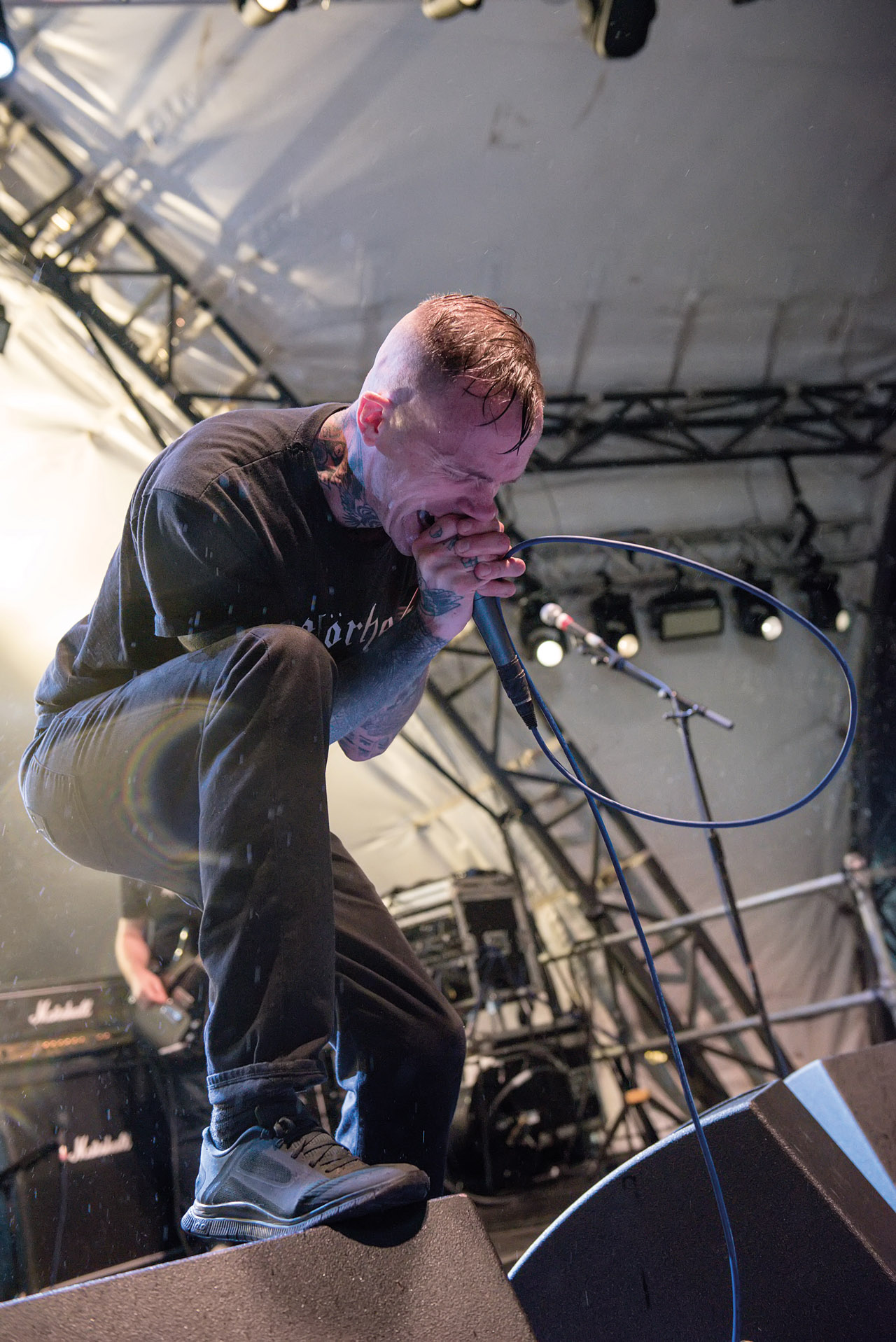
The path Converge and co had trodden paved the way for metalcore to prosper commercially, while bearing practically no hallmarks of where it came from. To some from the Boston scene, this was a step too far.
“Initially seeing bands like Killswitch Engage or Shadows Fall, with people like Brian Fair and Mike D’Antonio from Overcast in, gave me a lot of satisfaction,” says Aaron. “But when MTV and major labels came and made ‘metalcore’ the word that you associate it with today, I found that quite distasteful. It seemed to be a lot of people who were attracted to the sound of the music, but who had no idea or understanding of the DIY principles of where that music came from.”
But the Boston hardcore scene left a trail of bands who followed their own creative vision, and many of its players are still experimenting with new sounds today. Be it the dark, synth-pop of Wes’s Cold Cave, the discordant sludge of Aaron’s Sumac, Jacob’s solo, experimental Wear Your Wounds album, or the continuing brilliance of Converge – particularly their ambient Blood Moon project.
Meanwhile, Stephen Brodsky’s Mutoid Man and Kevin Baker’s All Pigs Must Die continue pushing hardcore punk forwards. They may not have enjoyed the commercial success of the metalcore bands of today, but their influence and impact is still felt throughout the underground, ringing out alongside the legacies of LA, New York and DC.
Cold Cave’s The Idea Of Love is out via Heartworm. Wear Your Wounds’ self-titled album is out via Deathwish. Mutoid Man’s War Moans is out via Sargent House. Converge are due to release an album this winter.
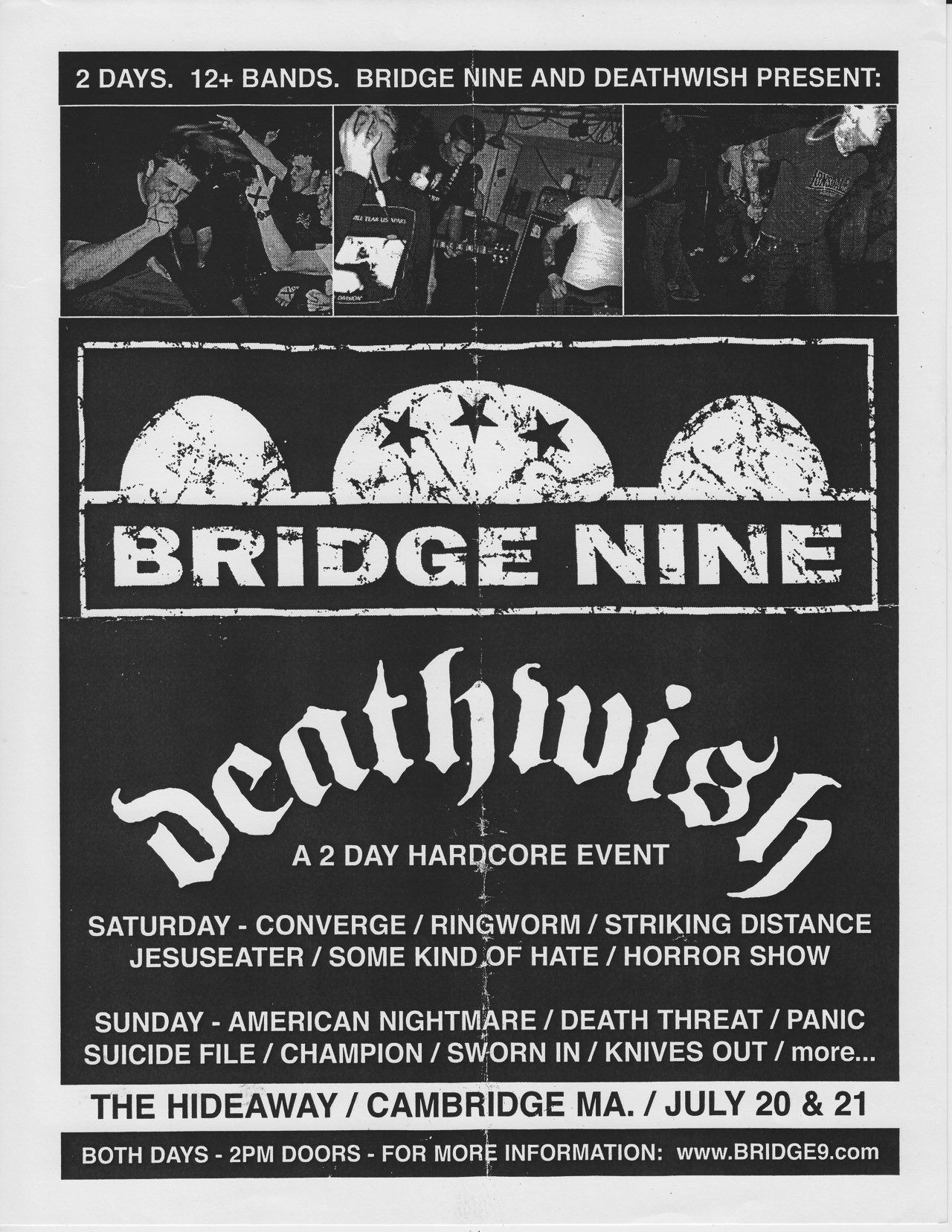
The albums that defined the Boston scene
The Hope Conspiracy: Cold Blue (2000)
Hope Con’s 2000 debut album might not have been heard by many people at the time, but looking back it’s the wildest album they ever put out. The youthful vigour and driving metallic hardcore on songs such as Fragile and Youth And Its Burden still singe eyebrows today.
Cave In: Jupiter (2000)
Proving that hardcore had more to it than just aggression, Cave In’s second album tore up the blueprint for metallic hardcore and pieced it back together using spacey prog rock, delicate melodies and technically dazzling time signatures. Not just one of the greatest albums of its time, one of the bravest, too.
American Nightmare: Background Music (2001)
Taking classic hardcore and filtering it through a poetically sensitive lead vocalist with a penchant for gothic imagery, AN’s debut tore a hole in the underground. Their influence took on a life of its own after they disbanded, but whether you were there from the start or heard them only recently, Background Music is an unstoppable trip.
Converge: Jane Doe (2001)
The album that truly put this wave of musicians on the map around the world, Jane Doe remains a benchmark release and an almost impossible standard for any likeminded band to live up to. A cathartic and challenging piece of art that is still totally vital today.
Isis: Oceanic (2002)
Taking their cues from Neurosis’s punk-turned-psychedelic-trip blueprint, Aaron Turner and co’s second record is a quantum leap from debut Celestial. Pushing their ambient tendencies even further, but retaining the raw heaviness that characterised so many Boston bands, this is a sweet spot in the history of post-metal.
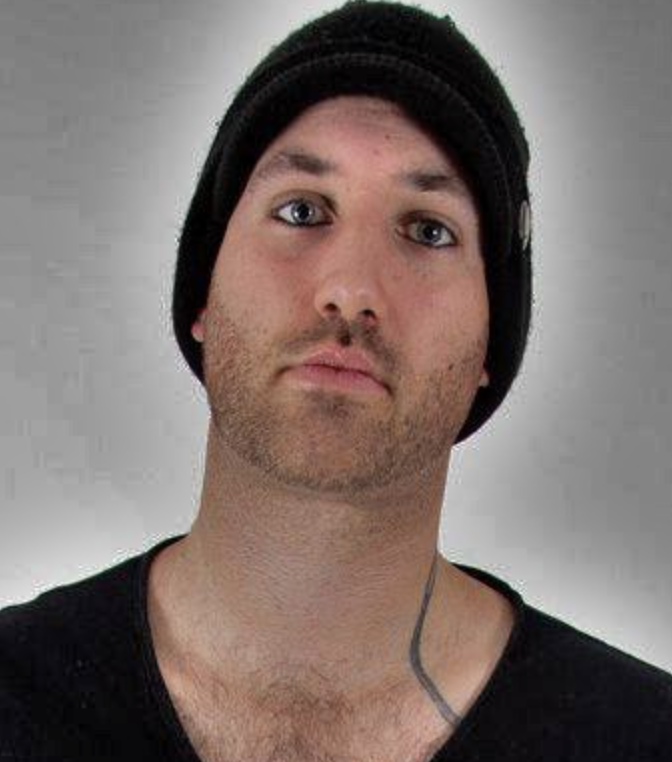
Stephen joined the Louder team as a co-host of the Metal Hammer Podcast in late 2011, eventually becoming a regular contributor to the magazine. He has since written hundreds of articles for Metal Hammer, Classic Rock and Louder, specialising in punk, hardcore and 90s metal. He also presents the Trve. Cvlt. Pop! podcast with Gaz Jones and makes regular appearances on the Bangers And Most podcast.
